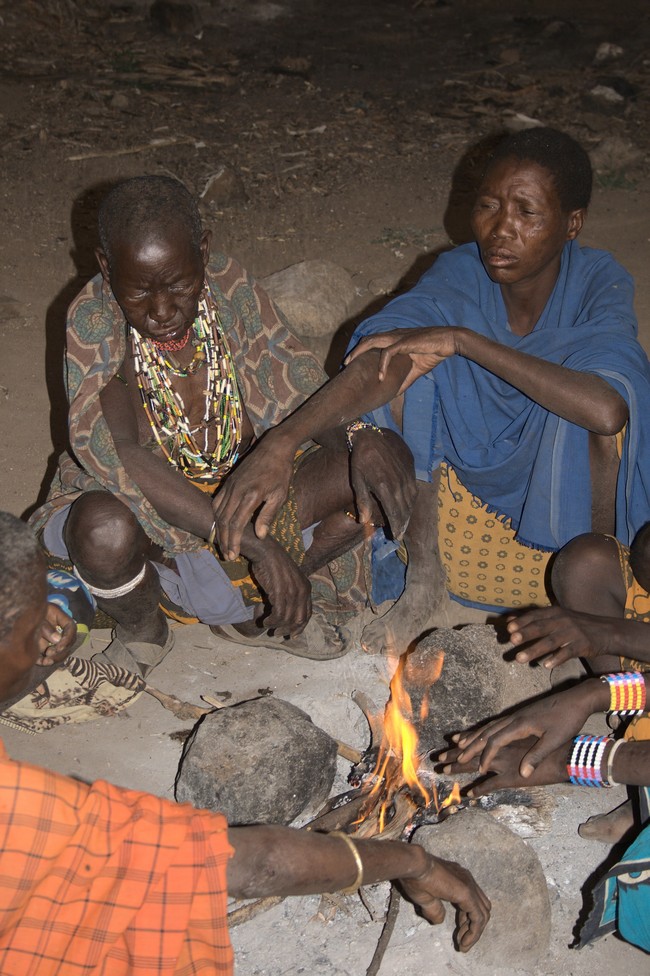The Hadza, an indigenous ethnic group residing in the Lake Eyasi region of Tanzania, are a captivating community with a unique way of life that provides a window into humanity’s distant past. With a population ranging from 1,000 to 1,500 individuals, the Hadza are among the last remaining hunter-gatherer societies in East Africa. Their distinctive cultural practices, linguistic nuances, and nomadic lifestyle set them apart, making the Hadza a fascinating subject for exploration.

Language is a cornerstone of any culture, and the Hadza language, Hadzane, adds an extra layer of intrigue to their identity. Characterized by the use of click consonants, this linguistic feature distinguishes them from neighboring tribes and reflects a rich cultural heritage. The intricacies of Hadzane, with its unique sounds and structures, encapsulate the essence of Hadza communication, passed down through generations.
The Hadza people traditionally lead a nomadic existence, navigating the vast and varied landscape of their territory. Their movements are dictated by the ever-changing availability of resources, particularly game and wild plant foods. This mobility requires an intimate knowledge of the environment, as well as a deep understanding of animal behavior. The Hadza have honed their hunting and foraging techniques to perfection, showcasing a harmonious relationship with the natural world.
Hunting holds a central role in Hadza life, and the men of the community are typically responsible for this vital activity. Armed with bows and arrows, they embark on forays into the wilderness, relying on skill, knowledge, and teamwork to secure sustenance. The women, equally adept, specialize in foraging for wild plant foods, contributing to the diverse and balanced Hadza diet. This division of labor reflects not only practical considerations but also a cultural harmony with nature.
The Hadza’s hunting techniques are a testament to their deep connection with the environment. Tracking game requires acute observational skills, an understanding of animal tracks and behavior, and the ability to navigate the terrain. The Hadza people’s success in these endeavors stems from a profound respect for the natural world and the creatures they share it with.
Social organization within the Hadza community is characterized by a remarkable egalitarianism. Decision-making is often achieved through consensus, with each member’s voice holding equal weight. While elders are respected for their accumulated wisdom, there is no rigid hierarchical structure. This communal approach ensures that the needs and perspectives of every individual are considered, contributing to a sense of unity within the group.
The role of elders in Hadza society is significant. Their experience and knowledge make them valuable repositories of wisdom, and their guidance is sought in matters of community importance. Yet, even as the elders provide a guiding hand, decisions are ultimately collective, reinforcing the sense of shared responsibility that underpins Hadza social structure.
The Hadza people’s rich oral tradition serves as a powerful tool for the transmission of knowledge and cultural identity. Through storytelling, they pass down their history, myths, and rituals from one generation to the next. These narratives not only provide a connection to the past but also serve as a dynamic and living expression of the Hadza worldview. The oral tradition is a living testament to the resilience of a culture that has survived the test of time.
Rituals and ceremonies play a crucial role in Hadza life, marking significant milestones such as initiation rites, marriage, and hunting celebrations. These events are accompanied by traditional dances, music, and chants that reflect the community’s vibrant cultural heritage. The rituals are not merely performative; they serve as a communal expression of identity, reinforcing the bonds that tie the Hadza people together.
In recent times, the Hadza have faced numerous challenges that threaten their traditional way of life. Encroachment on their ancestral lands, increased contact with neighboring communities, and the influence of external economic forces pose significant hurdles. Efforts are being made, both by the Hadza themselves and external organizations, to protect their land rights and preserve their unique cultural practices.
As the Hadza navigate the complexities of the modern world, there is a delicate balance to be struck between preserving their ancient traditions and adapting to contemporary challenges. The story of the Hadza is not just a historical narrative; it is a living chronicle of resilience and adaptation in the face of change. It highlights the importance of recognizing and safeguarding the diversity of human cultures as we collectively navigate the challenges of the 21st century.
In conclusion, the Hadza people’s journey is a testament to the endurance of indigenous cultures in the face of external pressures. Their unique linguistic heritage, nomadic lifestyle, hunting and foraging techniques, egalitarian social structure, and vibrant cultural practices all contribute to a rich tapestry of human diversity. As we reflect on the Hadza, we are reminded of the importance of preserving and celebrating the myriad ways in which humanity has thrived throughout its history.